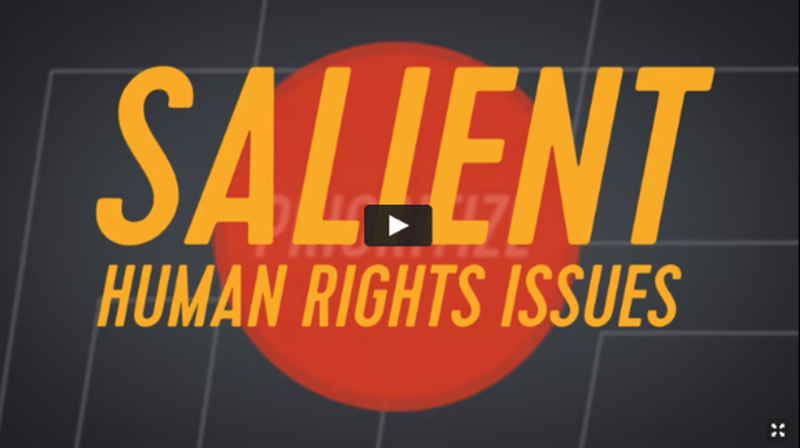Identifying risks
The concept of due diligence originally comes from the financial world, specifically in the context of mergers and acquisitions. When a company intends to acquire another, it seeks to verify if there are any unforeseen issues.
Is the company in good financial standing? Are market expectations positive? Are there no legal issues? Conducting a careful background check reduces the likelihood of unpleasant surprises. This process often requires a one-time check. Increasingly, sustainability is now being evaluated using a similar process.
Due diligence for IRBC
Responsible business conduct requires continuous effort, unlike the one-time check typical in the financial world. In this training, due diligence is defined as a dynamic and ongoing improvement process. By carefully checking with whom you do business and ensuring there is no misconduct in the supply chain, you can avoid surprises. However, this can be challenging, especially for small and medium-sized enterprises (SMEs) that often have contact with wholesalers or intermediaries. It may not always be clear what the parties in the previous tiers do precisely, which is why a proactive attitude is required. Asking questions and collaborating are key to ensuring responsible business conduct.
Sustainability risks
When it comes to the financial sector, due diligence is primarily focused on financial risks, while in supply chains it is focused on social and environmental risks. For example:
- Child labour on cocoa plantations or in clothing factories
- Forced labour in the fishing industry
- Hazardous working conditions in leather tanning
- Water pollution after dyeing jeans
- Exploitation around mines
- Low wages on tea plantations
Unfortunately, the list is endless. The good news is that companies can make a difference. How? By implementing the six steps of due diligence.
Mapping Risks
Once you have identified the top countries from where you purchase ingredients/raw materials, it is crucial to assess the sustainability risks associated with them. Fortunately, you don't have to start from scratch as there is a lot of knowledge available. A quick internet search can provide valuable results. You can also explore the ‘useful tools’ section for tools and interesting websites. The supplier usually has a better understanding of sustainability risks associated with the product or country. Therefore, it is recommended to engage in a conversation with them. For companies that procure a wide range of ingredients, prioritization is the key.
Scale, Scope, and Irremediability
You can prioritise your risks by looking at scale, scope, and irremediability.
- Scale: Scale refers to the severity of the impact.
- Scope: the reach of the impact, for example the number of affected individuals or the degree of environmental damage.
- Irremediability: Irremediability concerns the extent to which damage can be reversed (or not).
Risks with a significant impact, broad scope, and irremediable character should be addressed first. It's important to determine priorities not just on your own, but also by consulting with your suppliers.

Sector examples
Textiles: Circular Textiles
Sympany collects and trades used textiles in the Netherlands. Non-reusable textiles are traded to, among other places, Eastern Europe. After the textile leaves the Netherlands, there is little visibility into the chain and any potential risks. Sympany suspected that the textile ultimately ended up in Panipat, India, on the textile dumpsite. Child labour occurs at this textile dumpsite. To take responsibility for the risks in the supply chain, Sympany, in collaboration with Humana People to People India (HPPI), conducted an investigation to map child labour. As part of the research, they assessed the number of children involved in labour, how many have prematurely left school, and how many are currently attending school. The study also identified the underlying causes of child labour: low incomes, high school costs, debts, lack of facilities, and interest. The information from this study identified problem areas and opportunities to create child labour-free zones, addressing the root causes of child labour. Read the entire case study here.
Mining: Fair Natural Stone
Arte provides countertops and materials for kitchens and other projects, such as table and kitchen countertops for restaurants, reception counters, coffee corners for offices, and sinks for hotel chains. The company strongly focuses on the environment and the well-being of all people involved in production. Arte obtains about 75% of its granite from India, where child labour is a serious concern in the quarries. In collaboration with a Dutch and local NGO, and with the support of RVO, Arte is committed to fighting child labour. To take targeted action, they conducted research to gain a full understanding of children's rights and the extent of child labour in Ballikurava, India. This baseline assessment was based on household surveys, individual interviews, and focus group discussions with various stakeholders in the selected villages. Based on this research, Arte took targeted action. Learn more about Arte's efforts on the Arte Foundation website.